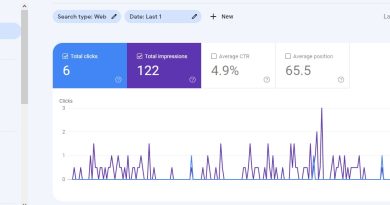The Secrets to Niche Marketing
There are two different ways of ideas about niches. One takes the target audience into consideration first, which is the product centric model, while the other takes the product into consideration first, the audience centric model.
Actually, both of these ideas are identical but one of them will allow you to have more advantage. So which one is that? The product centric based idea.
What is niche marketing?
Niche marketing has become a powerful strategy for businesses seeking to connect with a highly targeted audience and achieve significant growth. By focusing on specific segments of the market, niche marketing allows businesses to tailor their products, services, and messaging to meet the unique needs and preferences of their ideal customers. This essay delves into the secrets behind successful niche marketing, exploring the strategic approaches, targeted communication, and customer-centricity that drive exceptional results.
A niche market is a small part of a larger market with its own specific needs, preferences, and identity, which are different from the larger market in some way. For example, within the market for women’s clothing, there are several different segments or niches. Vegan women, and pregnant women are a few examples of niche markets.
Advantages of Niche Market
The key advantages of a niche market include:
Increased Profits: By targeting a specific type of buyer organizations can focus on selling the most profitable products and services to their ideal customers, resulting in increased profitability.
Increased Productivity: Enables organizations to establish focus and consistency, which in turn lays the foundation for developing efficient systems and processes that maximize output and productivity.
Reduced Marketing Costs: Well-designed sales and marketing campaigns that effectively engage the target audience in a niche market can be repurposed and reused over time, driving leads for extended periods. This leads to cost savings as the campaigns can generate results for months or even years.
Greater Trust and Credibility: By specializing in a specific market niche, businesses gain more experience and build industry thought leadership. This helps establish the brand as an expert in the field, fostering trust and credibility among customers who see the business as capable of solving their specific problems.
Reduced Competition: Establishing expertise and thought leadership in a niche market creates a clear competitive advantage. As a recognized expert, it becomes easier to attract more customers within the same niche, as the business is seen as a go-to solution provider. This reduces competition from generalists and enhances the business’s market position.
Niche marketing Strategies
Through meticulous monitoring and data-driven optimization, businesses can refine their niche marketing strategies to achieve sustainable growth and lasting success. Embracing the secrets of niche marketing empowers businesses to connect deeply with their ideal customers, build brand loyalty, and stand out in the competitive landscape. By consistently delivering value and tailored solutions to the niche audience, businesses can unlock the true potential of niche marketing and drive their growth journey to new heights.

Market Research and Analysis
Conduct thorough market research to identify potential niche opportunities. Analyze customer demographics, behaviors, and pain points to uncover underserved or overlooked segments with growth potential.
Evaluating Competition and Demand
Assess the level of competition and demand within the identified niche markets. Choose niches with manageable competition and sufficient demand to ensure profitability and sustainability.
Crafting a Unique Value Proposition
Develop a compelling value proposition that clearly communicates the unique benefits and solutions offered to the target audience. Differentiate the brand from competitors by highlighting the niche’s specific advantages.
Setting Clear Objectives and Goals
Establish clear and measurable objectives for the niche marketing campaign. Define specific goals related to market share, customer acquisition, revenue growth, and brand positioning.
Building Targeted Communication
Create detailed audience personas to understand the needs, preferences, and pain points of the target customers. Tailor marketing messages and content to resonate with each segment’s unique characteristics.
Leverage data-driven insights to personalize marketing communications. Implement targeted email campaigns, personalized offers, and customized content to create meaningful connections with the audience.
Content Marketing for Niche Authority
Create high-quality and informative content that establishes the business as an authoritative resource within the niche. Utilize blog posts, articles, and educational materials to showcase expertise and build trust.
Social Media Engagement
Engage with the niche audience on social media platforms. Participate in discussions, respond to inquiries, and share valuable content to foster a sense of community and brand loyalty.

Listening to Customer Feedback
Actively seek and listen to customer feedback to understand their needs and preferences better. Use customer insights to refine products, services, and marketing strategies.
Providing Exceptional Customer Service
Offer exceptional customer service to create positive experiences and foster brand advocacy. Address customer queries promptly and efficiently to build trust and loyalty within the niche market.
Identifying Niche Influencers
Identify influential figures within the niche market, such as bloggers, experts, and thought leaders. Collaborate with these influencers to expand brand reach and credibility.
Influencer Marketing Campaigns
Implement influencer marketing campaigns to leverage the influencer’s audience and establish brand authority. Create authentic and engaging content in partnership with influencers to resonate with their followers.
Tracking Key Performance Indicators (KPIs)
Monitor key performance indicators relevant to the niche marketing campaign. Measure metrics such as customer acquisition cost, conversion rate, and customer lifetime value to assess campaign effectiveness.
Data-Driven Optimization
Use data insights to optimize the niche marketing strategy continuously. Identify areas for improvement, adapt to changing market dynamics, and refine tactics for better results.
In conclusion, niche marketing holds the key to unlocking exceptional growth opportunities for businesses willing to cater to a specific and targeted audience. By identifying profitable niche markets, defining clear marketing strategies, and building targeted communication, businesses can establish a strong foothold within their niches. Leveraging digital marketing channels, emphasizing customer-centricity, and collaborating with niche influencers further enhance the effectiveness of niche marketing campaigns.
The product centric model carries a time-tested rule of marketing: if you want to get into profit quickly, sell what people are already buying! There is plenty of information about things that sells well. Niche marketing is just a job to identify the gaps in the market which haven’t got dug yet, and build a business around it.
If you realize, books account for a huge portion of online revenue. Nevertheless, how do you grab a slice for yourself without competing against the huge companies like Amazon.com?
The answer is simple, you specialize. No matter how huge Amazon is, sometimes you still wouldn’t be able to find books that you want. What types of books are people searching for that they can’t find through the mainstream booksellers?
Could you become the authority and number one resource for books on a particular hobby? How about underground’ titles like “The Anarchist’s Cookbook”?
Another way you can build a niche around hot-selling products is to add some spice by customizing or personalizing them. In summary, the product-centric model is based on giving a twist to existing markets and trends.On the other side, an audience centric model takes a subject matter, special interests or information more importantly first. Basically, you start off with no idea on what to sell. You don’t have a product in mind. You only know your target-audience.
The great thing about the audience-centric approach is that you can create whole new markets out of thin air. This is the model preferred by most e-book authors and information marketers.
So where do we start? You need to assess your own interests and strengths before you begin, especially if this is your first time starting a business. What are you already interested in? Do you have any background or expertise on a particular subject? Start with what you know, you’ll have more advantage because your prior knowledge will allow you to narrow down your niche quickly. In other words, you already have a good idea of how the topic breaks down.
If your passion is music, for example, you know there is an almost endless supply of potential products and potential buyers in areas as diverse as:
• Instruments/instrument sales/instrument repair/vintage instruments
• Techniques and lessons on how to play a certain instrument
• Memorabilia – shirts, hats, tickets, stickers, posters, autographs
• Audio production, recording, CD labeling, booking, promotion etc
Same way the various product categories can be also further divide into more sub categories and all of these can be niche marketing.
You also know that any or all of those can be tailored towards: solo artists, bands, fans, managers, engineers, agents and the list go on.
Now that’s a great thing for you, but what if that’s not you’re interested? What if you are just not into creating a business out of your hobby, or you don’t feel any passion for your current expertise?
The good news is: It’s Fine! You don’t need to give up hope or bang your head against the wall for ideas. You will however need to do some extra work. This brings us to the second reason I suggest taking stock of your strengths.
Here’s a secret about most internet marketers. Ready to know? Here it is: Most of the famous niche marketers you’ve heard of create products for niches they know absolutely nothing about.
How do they do that? Easy, they either hire the research and writing to someone else, or hunt down an expert for an interview, just a combination of outsourcing and “branding”. Also, this type of marketer has his or her own set of “reasons why” for motivation.
They include:
• Money
• Pride of ownership
• Love of the creative process
• Need for variety and breadth, rather than depth
It doesn’t matter as much to this type whether the market personally interests them. His or her goal and passion is to hunt down as many overlooked niches as possible, dive into them quickly and start profiting.
So, if this sounds like you, you’re in good company! Once you learn the basics of niche research, you’ll have your pick of dozens of potential business ideas.
How to Find a Perfect Niche Market
Here are a few ways to identify a niche market:
Identify your passions and interests: Start by exploring your own hobbies, skills, and knowledge areas. Look for niche markets that align with your personal passions, as this will give you a competitive edge and make your work more enjoyable.

Conduct market research: Analyze market trends, customer demands, and gaps in the existing market. Use tools like keyword research, surveys, and competitor analysis to identify underserved segments that have potential for growth and profitability.
Define your target audience: Clearly define the characteristics, demographics, and preferences of your ideal customers. Understand their pain points, needs, and desires to tailor your products or services specifically for them.
Test and validate your ideas: Before committing fully, test your niche market ideas through prototypes, minimum viable products (MVPs), or pilot projects. Seek feedback from potential customers and make necessary adjustments based on their responses.
Build a unique value proposition: Differentiate yourself from competitors by offering a unique selling proposition (USP) that resonates with your target audience. Identify what sets you apart and communicate that value effectively through your branding, messaging, and marketing efforts.






